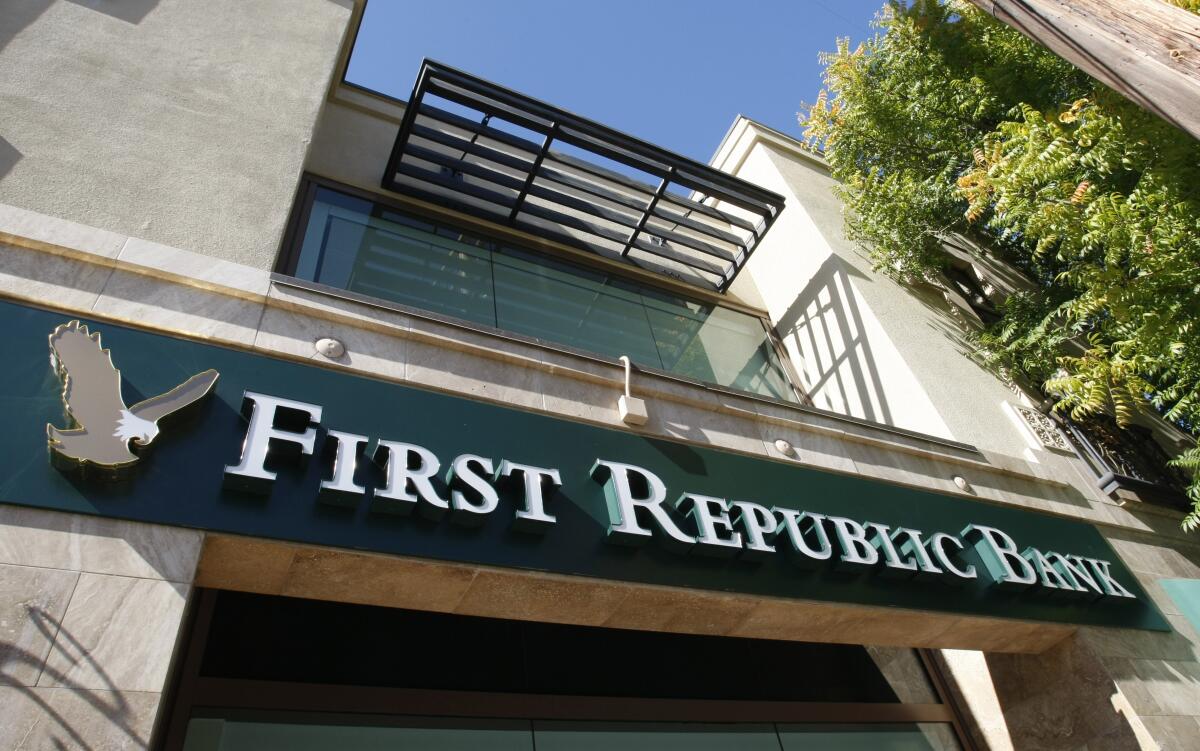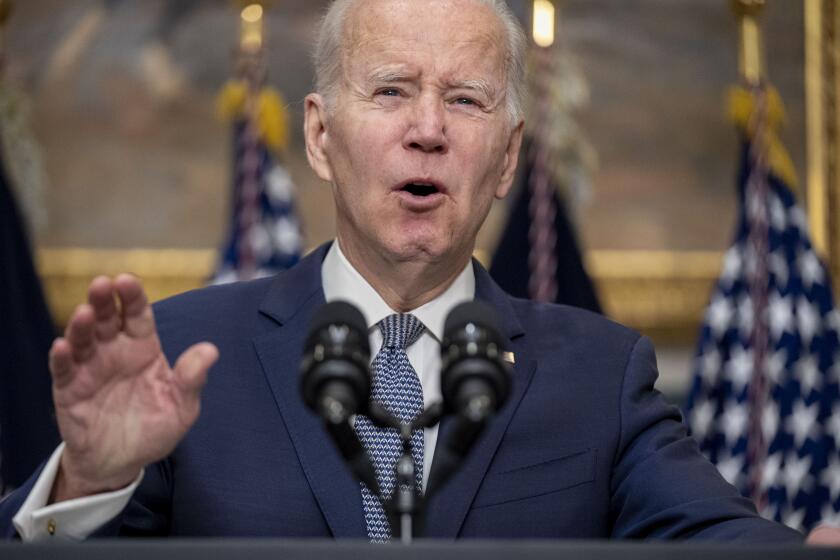First Republic shares sink in sign of broadening SVB contagion

- Share via
The turmoil following the collapse of Silicon Valley Bank continued to spread Monday, with First Republic Bank shares falling a record 62% despite efforts by the U.S. regional lender to reassure investors on its liquidity.
Declines accelerated despite a statement from the bank late Sunday that it had more than $70 billion in unused liquidity to fund operations from agreements that included the Federal Reserve and JPMorgan Chase. The KBW Bank Index dropped 12% for the biggest slide in three years.
“The additional borrowing capacity from the Federal Reserve, continued access to funding through the Federal Home Loan Bank, and ability to access additional financing through JPMorgan Chase increases, diversifies, and further strengthens First Republic’s existing liquidity profile,” the bank said.
Silicon Valley Bank failed late last week, prompting fears of wider upheaval. Here’s what you should know about the collapse and what comes next.
The assurances failed to win over investors, with many rushing for safety in U.S. and German debt, underlining concerns over the potential for rising interest rates to uncover hidden risks elsewhere. European bank stocks slumped even though analysts including at Deutsche Bank and Citigroup said the SVB crisis had little bearing on the outlook for lenders in the region that have recently posted robust profits.
More liquidity is available through the Fed’s new lending facility, according to the First Republic statement.
The announcement came after First Republic’s liquidity came under pressure along with other regional banks after SVB Financial Group’s banking unit collapsed into receivership Friday.
Assuring the public a crisis in the banking system was under control, President Biden blamed his predecessor for creating the conditions for the collapse of Silicon Valley Bank and Signature Bank.
In the United Kingdom, HSBC Holdings is buying SVB’s U.K. arm, after a frantic weekend during which ministers and bankers explored various ways to avert the SVB unit’s collapse.
Germany’s financial regulator, BaFin, announced Monday that it had frozen SVB’s branch in the country. Silicon Valley Bank Germany Branch will not be allowed to sell assets or make payments because it’s at risk of not being able to fulfill commitments to creditors, BaFin said in a statement.
The German operations aren’t considered to be systemically relevant, BaFin said. The Frankfurt-based institution’s balance sheet amounted to $842.3 million at the end of last year and doesn’t take deposits, according to the regulator.
Shares at Credit Suisse Group tumbled as well, without any evidence of a clear link to the SVB crisis. The troubled Swiss lender is in the midst of a complex overhaul and has struggled to hold on to client cash amid concerns over its return to profitability.
Demands by the tech industry’s most vocal libertarians for a government bailout of Silicon Valley call to mind the old saw: The goal in business to privatize profits and socialize losses.
Before SVB’s collapse, analysts at Bloomberg Intelligence saw First Republic as potentially posting better loan growth and asset quality than its peers, as it focuses on high-net-worth individuals in urban markets and has a “conservative credit culture.”
More to Read
Inside the business of entertainment
The Wide Shot brings you news, analysis and insights on everything from streaming wars to production — and what it all means for the future.
You may occasionally receive promotional content from the Los Angeles Times.












